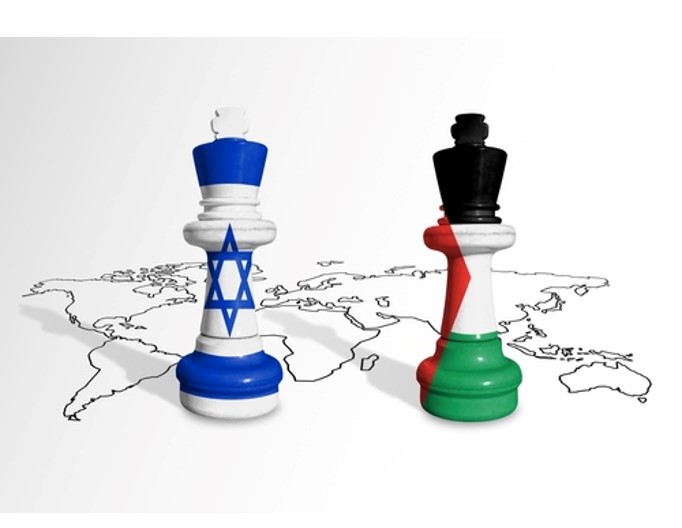Foreign Imposition – Part One
Simply put, foreigners imposed the state of Israel on the Palestinians. This is true, even if one believes the Jewish people have a historical right or a religious right to Palestine. Consider the following:

Chronological History
● During the late 19th and early 20th century of the Ottoman Empire, Muslims, Christians, and Jews lived in peace worshiping their own respective Holy Sites in Palestine. [1] For perspective, in 1890, there were approximately 432,000 Muslims, 57,000 Christians, and 43,000 Jews in Palestine. [2]
● Meanwhile, during the same time period, antisemitism and other factors in Europe and Russia led to a movement referred to as Zionism. Zionism sought to establish a homeland for the Jewish people in Palestine. Jews began to migrate to Palestine in the late 19th century.
● During World War I, the British declared support for a Jewish homeland in Palestine through the Balfour Declaration. [3]
● When the British took over Palestine after the war, the League of Nations approved the “Mandate for Palestine”. This mandate supported an establishment of the Jewish National Home west of the Jordan River (Palestine). [4] The British subsequently allowed massive immigration of Jews into the area.

● Palestinians resisted British support for the Jewish homeland and the massive immigration by revolting in the mid-to-late 1930s. Jewish immigration became more restricted. The Peel Commission studied the situation and determined that the Mandate for Palestine wasn’t viable. A partition plan was created that the Palestinians rejected. The Zionist accepted it in principle but wanted more land. [5]
David Ben-Gurion, the first Prime Minister of Israel wrote to his son, “a Jewish state on only part of the land is not the end but the beginning.” [6]
● Both sides conducted terrorist attacks. In June of 1946, a Pre-Israeli terrorist group bombed the King David Hotel in Jerusalem killing 91 people. [7]
● In 1947, the newly formed U.N. developed and approved a partition plan. Israel would have around 52% of Palestine, even though the Jews only had 33% of the population and owned less than 6% of the land. [8] Most of Jews arrived within the last few years. The Palestinian Arabs rejected the plan; the Jewish Agency accepted it publicly, but many were not satisfied with it. For one, it excluded Jerusalem.
A leader of one of those paramilitary groups and future Prime Minister, Menachem Begin, declared that “Jerusalem was and will forever be our capital.” [9]

Opinion and Analysis – Foreign Imposition
The leaders of what is now Israel accepted both partition plans seeing it as a foothold or starting point for future expansion. Many people criticize the Palestinians for rejecting these plans. They claim the Palestinians during that time were an obstacle to peace and would have been better off if they had just accepted one of those partition plans.
The challenges are the government of Israel was going to expand regardless of the plan, and why would the Palestinians accept any plan through foreign imposition? It would be analogous to the United States accepting a United Nation’s plan to give up all the land west of the Mississippi River for Israel. Would you vote in favor of that ballot initiative?
Menu

References – Foreign Imposition
1) Smith, Charles (2021) Palestine and the Arab-Israeli Conflict (10th Edition), Bedford/St. Martin’s, p13
2) Della Pergola, Sergio (2003) “Demographic Trends in Israel and Palestine: Prospects and Policy Implications” The American Jewish Year Book, (Vol. 103), p11.
3) Page, Rob (2016) “Balfour Declaration” House of Commons Library: Briefing Paper (CBP7766) p4
4) The British Mandate for Palestine. Jewishvirtuallibrary.org
5) Scott-Baumann, Michael (2021) The Shortest History of Israel and Palestine, The Experiment, LLC pp46-55
6) The Ben Gurion Letter JewishVoiceforPeace.org
7) Smith, Charles (2021) Palestine and the Arab-Israeli Conflict (10th Edition), Bedford/St. Martin’s, p185
8) Smith, Charles (2021) Palestine and the Arab-Israeli Conflict (10th Edition), Bedford/St. Martin’s, p188
9) Scott-Baumann, Michael (2021) The Shortest History of Israel and Palestine, The Experiment, LLC pp 65-66